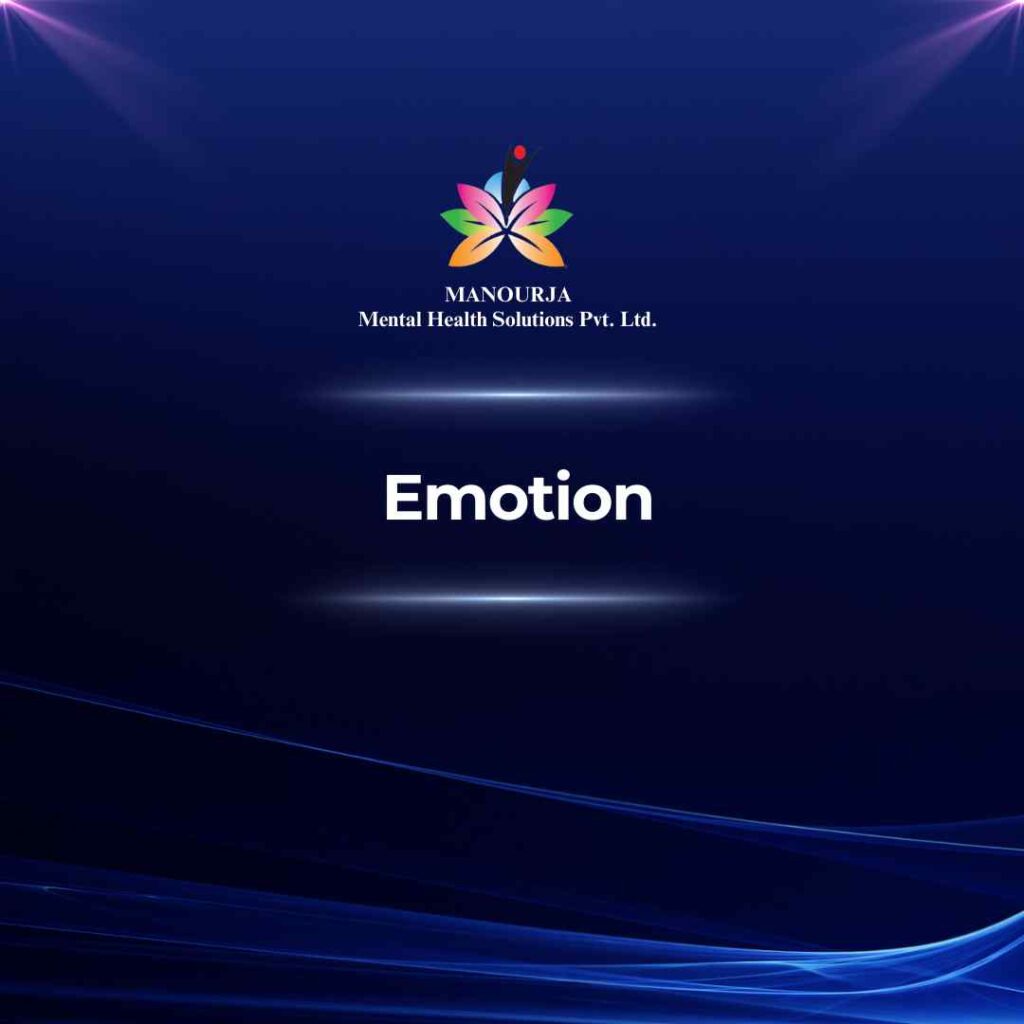Emotion

Emotion is a complex psychological state that encompasses a range of feelings, thoughts, and behaviors. Emotions are often categorized into basic types such as happiness, sadness, fear, anger, surprise, and disgust. These emotional states are influenced by our experiences, thoughts, and physiological responses. Emotions play a crucial role in how we interact with the world and are essential for our survival and well-being. They can drive us to take action, help us communicate with others, and influence our decisions.
Emotion as a Sign and Symptom of Mental Illness
Emotions can become a focal point in the diagnosis and treatment of mental illnesses when they are either excessively intense, inappropriate to the context, or persistently negative. Emotional disturbances can significantly impact an individual’s daily functioning, relationships, and overall quality of life. Here, we explore how abnormal emotional states serve as signs and symptoms of various mental health conditions.
Mental Illnesses and Conditions Associated with Emotion
In major depressive disorder, individuals experience persistent and intense feelings of sadness, hopelessness, and emptiness. These negative emotions are often accompanied by a lack of interest or pleasure in activities that were once enjoyable. Emotional dysregulation in depression can lead to significant impairments in daily functioning and quality of life.
Bipolar disorder is characterized by extreme mood swings that include emotional mania or hypomania and depression. During manic episodes, individuals may experience heightened emotions such as euphoria, irritability, and grandiosity. Conversely, depressive episodes are marked by profound sadness, despair, and a loss of energy.
Generalized anxiety disorder involves chronic and excessive worry that is difficult to control. This condition often includes emotions such as fear, apprehension, and tension. These emotions can be overwhelming and persistent, interfering with daily activities and social interactions.
Borderline personality disorder is associated with intense and unstable emotions. Individuals with BPD may experience rapid mood swings, from deep sadness to intense anger or anxiety. Emotional instability can lead to impulsive behaviors and strained relationships.
In post-traumatic stress disorder, individuals relive traumatic events through flashbacks, nightmares, and intrusive thoughts, leading to emotions such as fear, guilt, and anger. These emotional responses can be triggered by reminders of the trauma and can significantly disrupt daily life.
Obsessive-compulsive disorder involves unwanted, intrusive thoughts (obsessions) that cause distress and anxiety. To alleviate these emotions, individuals engage in repetitive behaviors or mental acts (compulsions). The intense emotional response to obsessions and the temporary relief from compulsions create a cycle that is difficult to break.
Schizophrenia can involve a range of emotional disturbances, including blunted affect (reduced emotional expression), inappropriate emotional responses, and intense emotional reactions to hallucinations or delusions. These emotional symptoms can affect social interactions and the ability to engage in everyday activities.
Panic disorder is characterized by recurrent panic attacks, which are sudden and intense episodes of fear or discomfort. During a panic attack, individuals may experience overwhelming emotions such as terror, a sense of impending doom, and a fear of losing control.
- Autism Spectrum Disorder (ASD)
While autism spectrum disorder is primarily known for challenges in social communication and behavior, individuals with ASD may also experience emotional dysregulation. This can include difficulty identifying and expressing emotions, intense emotional reactions, and challenges in understanding others’ emotions.
Conclusion
Emotion is a fundamental aspect of human experience, but when emotions are excessively intense, inappropriate, or persistently negative, they can be indicative of mental health conditions. Recognizing and understanding emotional disturbances in the context of these disorders is crucial for accurate diagnosis and effective treatment. Addressing emotional symptoms often involves a combination of psychotherapy, medication, and supportive interventions to improve emotional regulation and overall well-being.
At MANOURJA, we believe in the transformative power of counseling. Our experienced therapists offer a safe and supportive space where you can explore your thoughts, emotions, and challenges. Through personalized counselling sessions, we’ll work together to develop coping strategies, build resilience, and achieve lasting positive change. Discover the path to a healthier, happier you with MANOURJA counselling services.
MANOURJA Rehabilitation Services
At MANOURJA, we’re dedicated to helping you in rebuild your life, after difficult times. Our rehabilitation services focus on understanding what you need to move forward, whether you’re recovering from addiction, trauma, or any psychological – social challenges. We create personalized plans, that are all about helping you, regain your strength and find hope again. With a caring team by your side, you’ll have the support to make real progress and take steps toward a brighter, healthier future.
